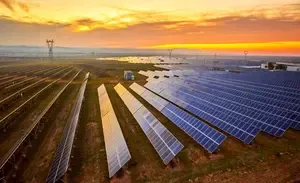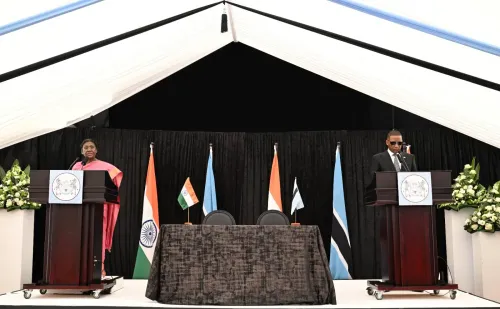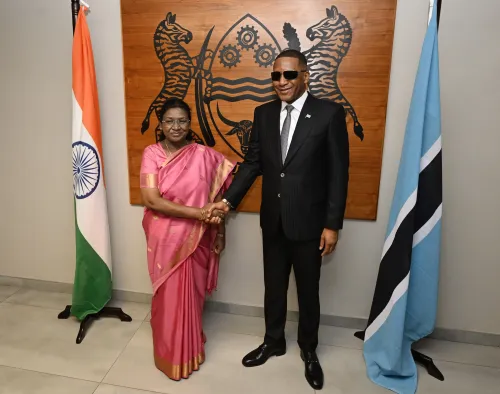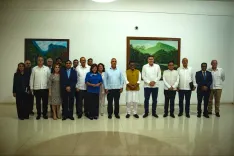UNHCR Initiates Solar Initiative to Support Refugees in Zambia

Synopsis
Key Takeaways
- UNHCR's solar initiative aims to enhance electricity access.
- Beneficial for Lusaka, Mantapala, and Meheba settlements.
- Collaborative effort with Zambia's Ministry of Home Affairs.
- Addresses electricity shortages and power outages.
- Supports essential services for refugees and asylum seekers.
Lusaka, Jan 29 (NationPress) The United Nations High Commissioner for Refugees (UNHCR) has initiated a solar photovoltaic initiative aimed at enhancing electricity access in refugee communities across Zambia, thereby uplifting the living conditions of both refugees and local residents.
This solar energy project is anticipated to benefit refugee camps in Lusaka, the nation’s capital, as well as the Mantapala Refugee Settlement located in the northern region and the Meheba Refugee Settlement situated in the western region of the country, as reported by Xinhua news agency.
The initiative is a collaborative effort between the UNHCR and Zambia's Ministry of Home Affairs and Internal Security. It aims to ensure a consistent power supply to the refugee camps and mitigate the issues arising from the frequent power outages Zambia currently experiences due to an electricity shortfall.
“As we are all aware, having access to dependable energy is crucial for delivering essential services and protections to displaced individuals. The persistent power outages highlight the urgent need for innovative solutions that not only address current challenges but also foster a sustainable future,” stated Preeta Law, UNHCR representative in Zambia, during the project’s launch at the Makeni Refugee Transit Center in Lusaka.
She emphasized that this initiative is more than just an investment in renewable energy; it is an investment in human dignity and resilience, which will enable refugees and asylum seekers to access vital services such as healthcare, protection, and registration.
According to her, the solar power project also offers a dependable and cost-effective alternative, reducing dependence on diesel generators and thereby cutting down on carbon emissions.
Dickson Matembo, permanent secretary in Zambia's Ministry of Home Affairs and Internal Security, praised the UNHCR for its ongoing support in empowering both refugees and host communities.
He noted that this project aligns with Zambia's obligations under the Global Compact on Refugees established by the United Nations in 2018, which emphasizes the importance of supporting refugees and their host communities.









